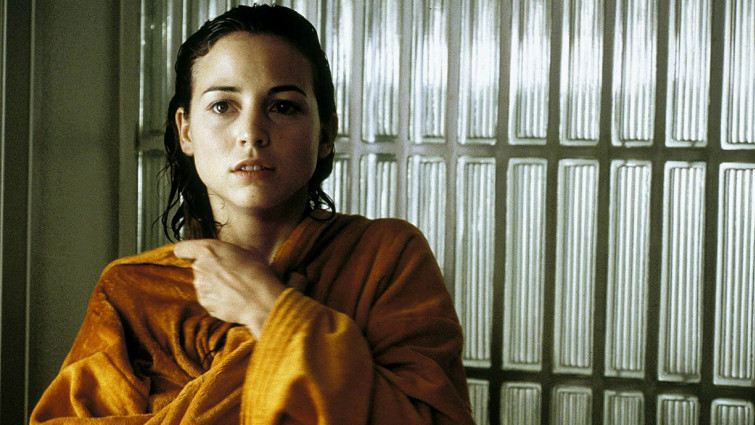

Member review

Hable Con Ella (Talk To Her)
Drama from master Spanish director Pedro Almodovar about two men who meet in a hospital while watching over women in long-term comas.
Certificate
Duration108 mins
Review by
-
 Josh, 17
Josh, 17 - 10 reviews
who let Almodovar read Freud
Where All About My Mother was a wholesome and funny experience, Talk To her - or Hable Con Ella - was a profoundly uncomfortable experience. I'm talking uncle-talking-about-immigrants-at-the-family-dinner levels of uncomfortable. When a film can be described as 'this could have been written by an alternate universe Freud who was Spanish with weird hair', I think you can assume that it will be an uncomfortable ride.
That being said, it is definitely an interesting film. Hable Con Ella follows the parallel stories of two men who spends time with two people they love who happen to be in comas. Benigno, a nurse who spent most of his life caring for his sick mother (I see you over there Freud, please leave me alone), now works as a nurse in a hospital following his mothers death. He begins to stalk a girl named Alicia through his window and then becomes her carer following an accident that puts her into a coma. Almodovar positions you as a voyeur, with the camera watching Alicia's body with the same uncomfortable, unshifting gaze as that of Benigno's. Maybe it's because of the expectations set up by watching All About My Mother first , but Talk To Her disguises itself as much more lighthearted than it actually is. At its core lies a deeply sinister abuse of power dynamics, and Almodovar forces us to watch and participate in every moment.
The moral dilemma that permeates the discourse surrounding this film is around whether Almodovar handles the subject matter responsibly. On the one hand, he does not condescend the viewer and trusts that they will view the subject matter critically. Via this interpretation, Talk To Her is a confronting, uncomfortable character study into the circumstances and thoughts that could cause someone to commit horrific acts. On the other hand, some argue that by treating the subject matter uncritically within the context of the film - depicting it objectively rather than explicitly critiquing it - it leaves room for a viewer to leave this dismissing Benigno's actions, and therefore contributing to a deeply misogynistic viewpoint and system. It's an interesting debate, and there is merit to both sides. Depiction vs endorsement is a debate that has surrounded cinema for a long time, and not just with this film.
Talk To Her was not necessarily an enjoyable experience, though it does have its moments of comedy and heartful human emotion, but it was at the very least an interesting one. Its confrontational voyeurism, which has echoes of a much more extreme version of the obsessive characters of Hitchcock's Vertigo and Rear Window, left me thoroughly unsettled. Whilst I believe this is an effective takeaway from the film, acting as an implicit critiquing of a distinctly gendered abuse of power dynamics, I am unsure whether the experience is one that I am glad I went through.